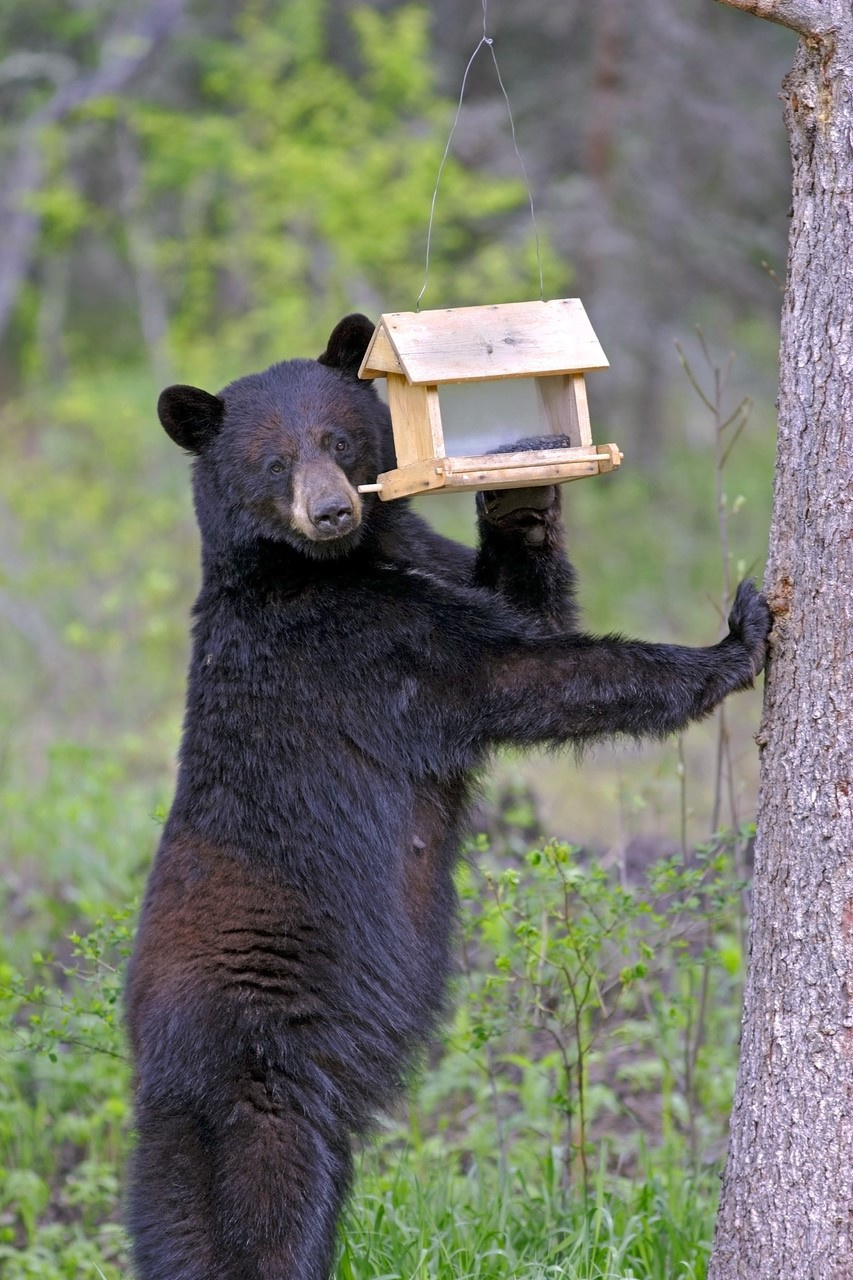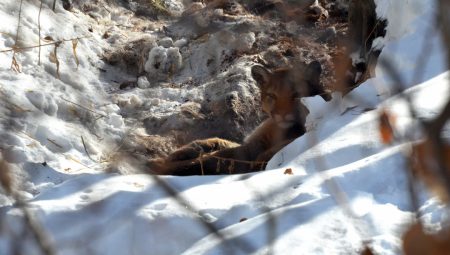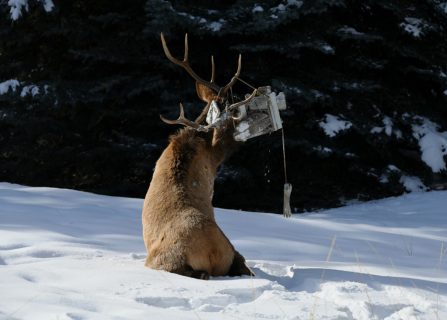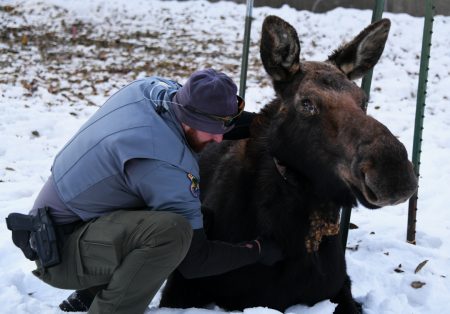Wood River Valley bears are already finding an easy meal in residential garbage containers
By Terry Thompson, Regional Communications Manager
Tuesday, May 12, 2020 – 3:34 PM MDT
Black bears in the Wood River Valley are already finding food rewards when roaming in neighborhoods, which can quickly lead to a food conditioned bear. Residents are urged to secure their household garbage to keep bears from getting a quick meal.
Residents south of Ketchum have been reporting black bears roaming their neighborhoods and getting into garbage cans and bird feeders. Since late April, four reports have come into Fish and Game about bears getting food rewards from residential garbage cans being left outside, and from bird seed and hummingbird feeders.

A black bear obtaining food from a bird feeder.
Last year, the first reports from the Wood River Valley about bears getting into neighborhood trash cans did not occur until mid-July.
“Our low snowpack, and very dry spring conditions seems to have brought bears into neighborhoods much earlier than we would typically see,” according to Senior Conservation Office Brandyn Hurd, “these bears, using their incredible sense of smell, are attracted to area neighborhoods because some residents are leaving their garbage cans unsecured, where they are easy targets for bears looking to get a quick meal.”
Don’t wait to manage your garbage until it’s too late for the bear
Residents are again asked to keep their garbage cans in a secure location until the morning of pick-up, such as a garage, or within a secure, enclosed space like a shed.
Garbage cans should not be left on the curbside the night before trash pick.
Unsecured residential and even business garbage containers are a major cause of bears becoming food habituated in the Wood River Valley.
A fed bear is a dead bear
It never ends well for the bear that becomes habituated to human food. We’ve all heard the saying “a fed bear is a dead bear” which is an unfortunate reality.
Public safety will always be the priority when bears find food rewards, no matter where they learn to find food, either around homes or businesses.
A bear that has developed a repeated habit of searching out and acquiring food from human sources is a threat to public safety, and will be trapped or darted with an anesthetizing drug, and then euthanized.
Relocation of a food habituated bear is not an option.
Often, the bear will return to where it was trapped because it knows there is a food reward waiting for them. Moving a food habituated bear might also just transfer the problem to another community or campground in the backcountry.
It’s up to everyone to keep our communities safe, while keeping bears, and all wildlife, wild.
For more information about how to manage your household or business garbage to protect bears please contact the Magic Valley Regional Office at (208) 324-4359.




